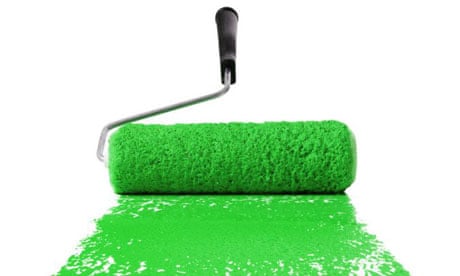From smoothies to loo roll to soap, it's easier than ever to find 'green' products for our homes and families. Even in the supposedly sceptial US, retailers are offering an increasing number of eco-options. That's the conclusion of a study by science and business consultancy TerraChoice. It assessed the entire product range of 24 stores across North America, and found that the number claiming to deliver environmental benefits increased by over 70% in both 2009 and 2010.
On the plus side, it shows that more companies are recognising that shoppers care about the impact of their sprees. For some businesses, this is a real driver of change, prompting them to undertake ecological impact assessments and think creatively about how to improve their green performance. But for others, it simply prompts a splurge of greenwash: the use of misleading or unsubstantiated information to entice the trusting consumer.
The danger, says Ed Gillespie, Co-Founder of sustainability communications consultancy Futerra, is that too many dodgy claims will eventually make cynics of us all: we will end up dismissing all assertions of greenery – real and bogus – with equal scepticism, so "undermin[ing] the nascent green market".
Encouragingly, trading standards agencies are on the case, with a new wave of regulations coming into force to protect consumers against false claims. The US Federal Trade Commission has warned against the use of third-party certification where the terms of qualification aren't specified, and against blanket claims, such as 'eco-friendly'. Following one recent court case, Ben & Jerry's removed the label 'natural' from all its packaging in response to complaints from a health advocacy group that the ice cream contains some processed ingredients.
In the UK, the Advertising Standards Agency has taken a similar approach. It set a precedent by upholding complaints against a BMW campaign. The company had implied that, at 210g/km CO2, a car had a "low" level of emissions – which is perhaps true relative to other luxury vehicles, but still more than double the lowest emission car on the mass market.
New EU legislation is focusing on the thorny question of how to compare the performance of different purchases. Companies that market a product as 'green' are now required to prove that its overall environmental impact is less than competing options. The idea is to promote a more holistic approach, so – for example – it might be used to question the credentials of a smoothie drink made with organic ingredients but sold in packaging that can't be recycled.
Regulatory interventions like these certainly offer better protection for consumers – but what sort of impact do they have on businesses struggling to do the right thing? Gillespie is concerned that the fear of getting it wrong has sparked another trend: 'greenhushing'. Some companies which have made genuine green progress, he says, "are growing wary of sticking their head above the parapet in case they've got anything wrong" – a reticence that could stunt their growth.
Moreover, tighter regulations mean that those companies which do want to tell consumers about their credentials now have to work much harder to prove them.
"It's certainly an added burden", says Effi Vandevoorde, International Communications Manager at Ecover. "Putting claims on packaging is becoming less and less cost-effective. In some cases, we're inclined to just take them all off…!"
For the moment, though, Ecover still feels that highlighting the relative impact of their cleaning products is worth the effort. So, in Denmark, it recently removed an ingredient from a detergent to ensure a claim met consumer expectations, rather than remove it from the packaging.
Whether all these regulations will reverse the claim-making trend – or whether more companies will simply rise to the challenge – remains to be seen. One thing's for sure. As green becomes mainstream, its pioneers will have to find new ways to stand out from the crowd.

Comments (…)
Sign in or create your Guardian account to join the discussion